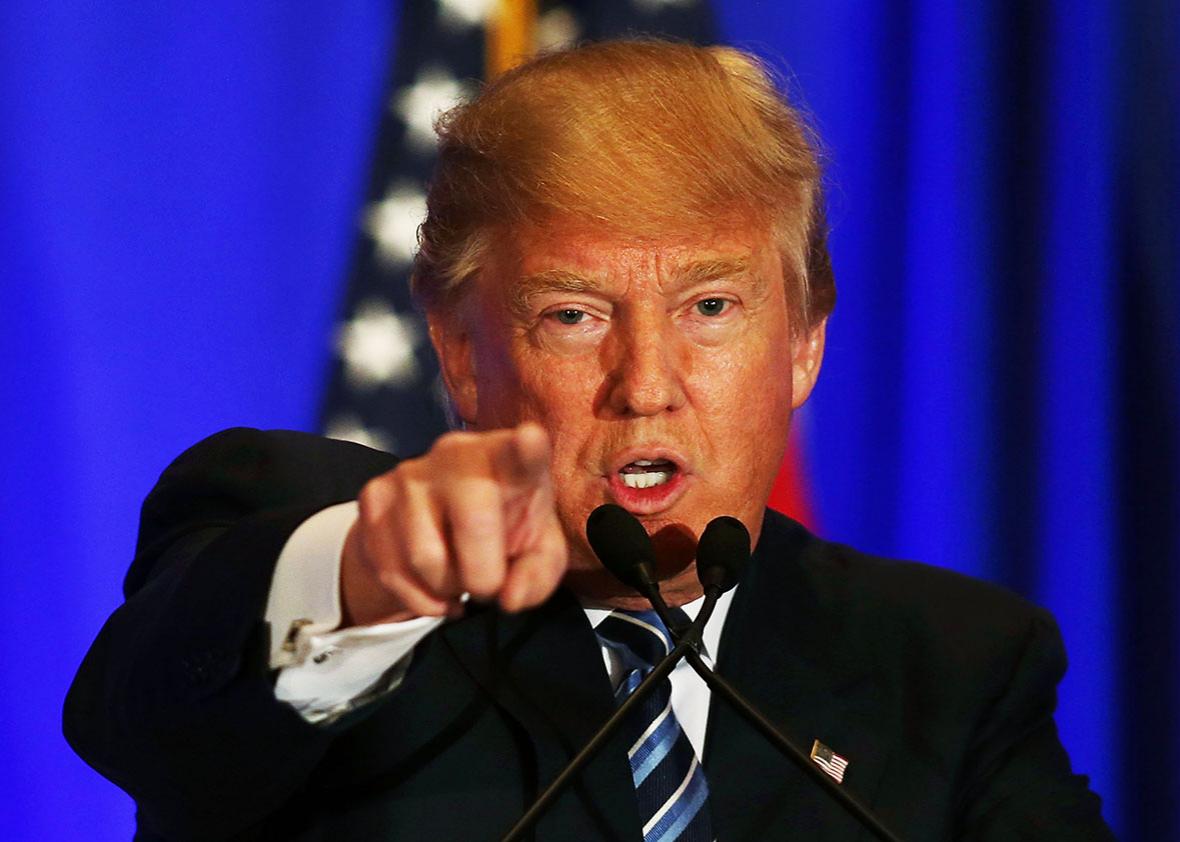On Wednesday afternoon, Fox News released a new national poll showing Donald Trump leading Hillary Clinton, 45 to 42 percent, a 10-point swing since the previous Fox survey a month ago. The poll sparked a discussion on social media, which included the usual caveats: It’s just one poll (true); Trump is almost certainly not leading Clinton by three points (also true: the pollster.com average has her up three points); professional Democrats enjoy freaking out (undeniably true); and we still have months of campaigning (sadly true). Trump got a bump for essentially wrapping up the Republican nomination; Clinton, meanwhile, is still battling Bernie Sanders, even if her eventual triumph—and a subsequent boost in the polls—is inevitable. And check out those crosstabs.
So, then, what can a single poll tell us in a long election cycle that itself has become an unpredictable freak show? Nothing—but it can serve as a much-needed reminder that this election is closer than it has any right to be. And the proper response to that fact—to Trump’s almost incomprehensible rise from birther-conspiracist celebrity half-wit to presumptive nominee sitting within striking distance of a former secretary of state—is fear. A bigoted know-nothing could truly be our next president. To argue that Americans should be anything less than terrified is itself irresponsible.
The typical response to such hyperventilating is to tell the person doing so to take a deep breath. In the context of the election, this usually takes the form of one of two arguments. Trump isn’t so scary, the first argument goes. Isn’t he just an actor and buffoon rather than a dangerous demagogue? Put aside the issue of how we should feel about someone who doesn’t believe racist and Islamophobic rhetoric but uses it for political expediency. (How confident are you that such a person would not do absolutely anything if it became politically expedient?) Everyone who has been paying more than limited attention to the presidential race is aware by now that Trump’s personality is not a put-on. He is a misogynist. He has genuine affection for autocracy and brute force. He is pettily invested in going after perceived enemies, in the press or in business. It once seemed possible that Trump was a moderate businessman pretending to be a nasty right-winger. No longer.
The second response is to say that Trump will probably not win, because of all the factors that my colleague Jamelle Bouie has laid out. So, fine: For the sake of conversation, let’s grant Trump only a 20 percent chance of defeating Clinton in November. This is the reason we should be freaking out! Imagine if I told you that there was a 1-in-5 possibility that something awful would happen to your spouse or your child by November. Would you spend the next six months merrily repeating that there was an 80 percent chance your loved one would be fine? Of course not. Americans should consider the possibility of a Trump presidency similarly.
Trump has gotten as far as he has after running a campaign most notable for its complete lack of policy substance and a media strategy that consists of pathological lying. He has exposed giant chunks of the press corps as craven and pathetic. He has shown that 45 percent of the voting public, give or take, is willing to elect someone who has spent the past year campaigning openly as a crass bigot who hates the women he’s not having sex with (and he probably hates them, too). He has proved that running as a white nationalist is not an immediate disqualifier for the presidency of the United States in 20–freaking–16. Politicians have always run “against” institutions or people, whether they are insurance companies or government bureaucrats. But never in modern history has someone gotten this far in political life by running an entire campaign based on grievance and rage, and against society’s less fortunate.
The controversy that broke out over the pro-Sanders hashtag #BernieOrBust earlier this week was another manifestation of the underestimation of Trump’s unique threat to democracy. Whatever you think about Hillary Clinton or Bernie Sanders, there are quite clearly millions of people in this country (many of them very progressive) who have not wrestled with who Donald Trump is and what he represents. (Even scarier is the fact that so many Americans have wrestled with Trump to some degree, and find him palatable enough.) It’s certainly possible that if the election is close in October, the country will witness a belated freak-out, followed by a huge Democratic turnout wave. But it would also be nice not to wager our future on people becoming appropriately serious only as the clock ticks down.
The next six months could be a hinge time in the country’s history. I say this without exaggeration. The world is already beset by the rise of a new authoritarianism everywhere from South Asia to Western Europe. To say that people should panic does not mean they should cease to be rational or thinking or active. It means they should be scared, and cognizant of the moment, because it is an absolutely frightening one.
Read more Slate coverage of the 2016 campaign.
